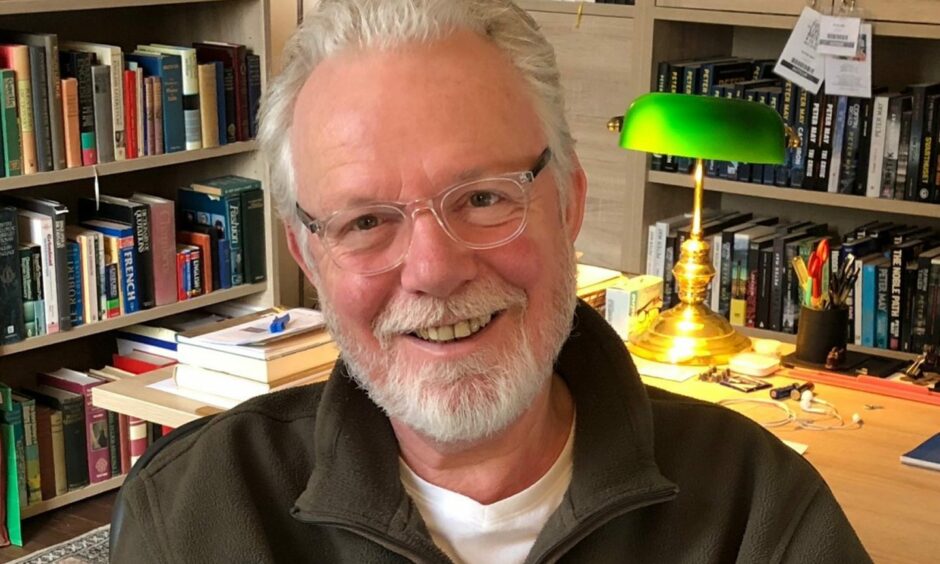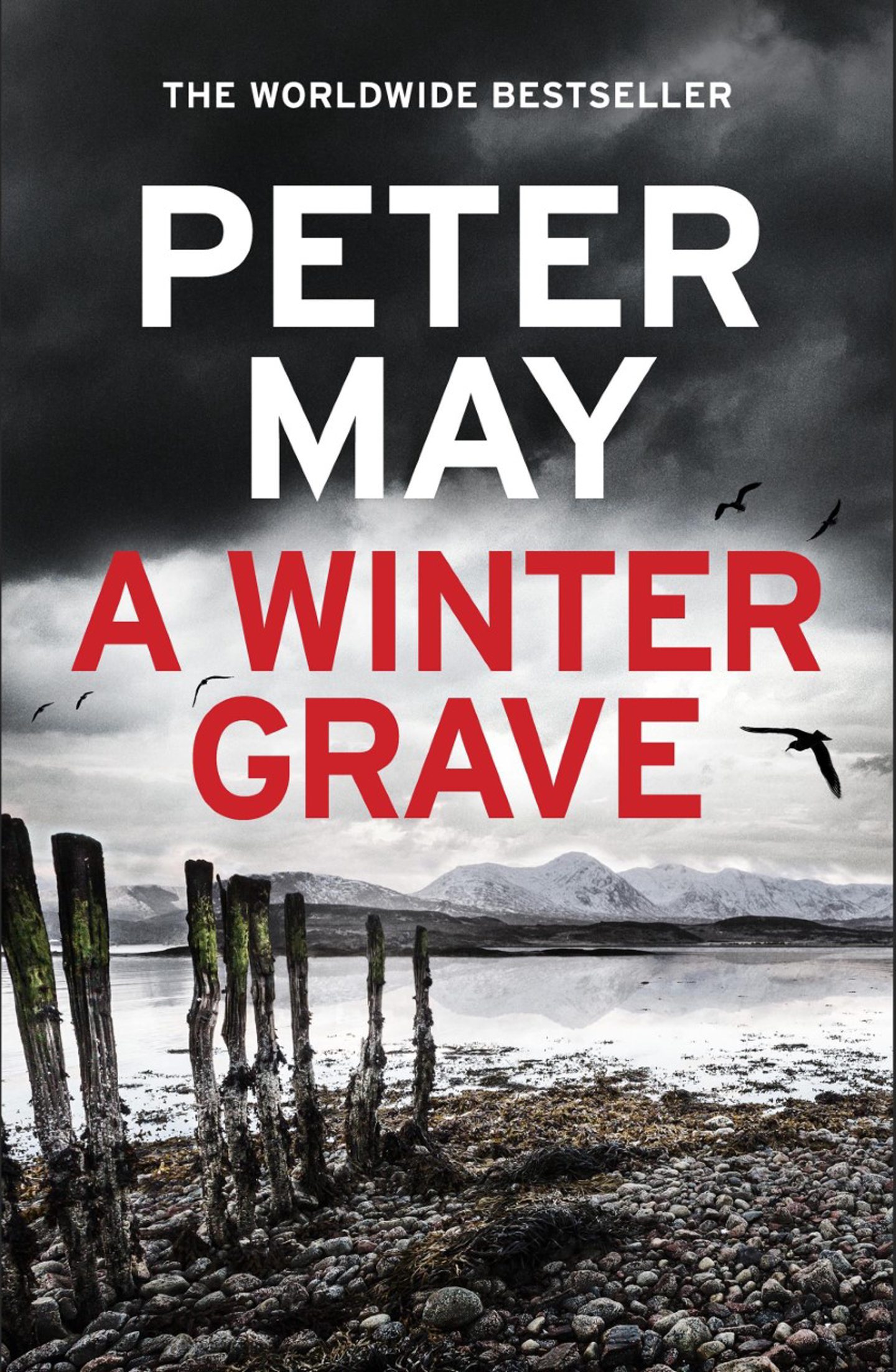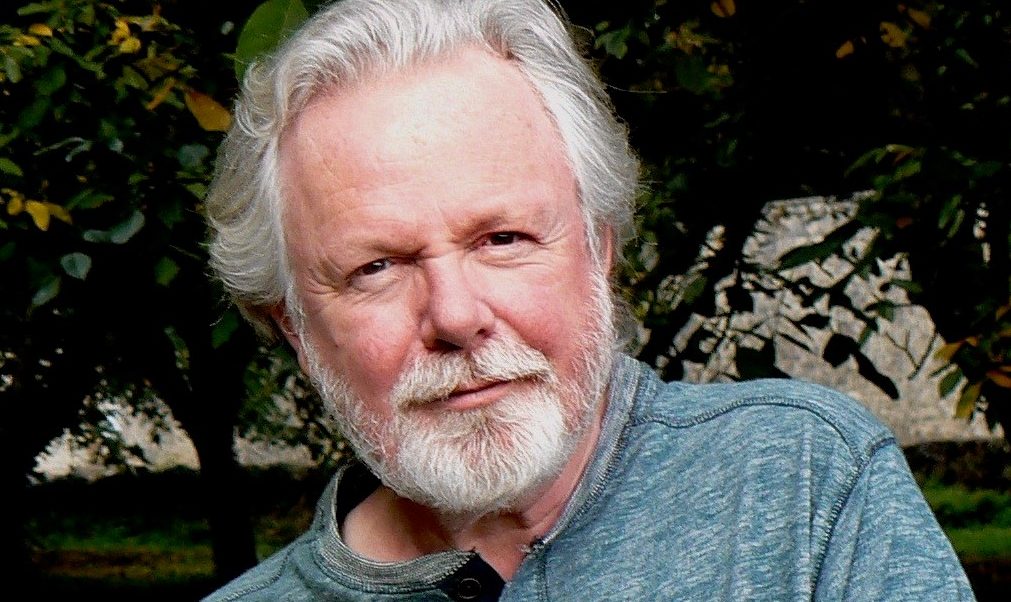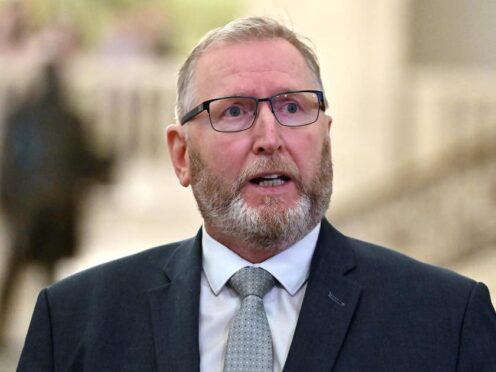
Peter May isn’t the type of person to throw soup at famous artworks or glue himself to council buildings in a protest against Big Oil.
But, once you start talking to the Scottish author about his new book A Winter Grave, which deals with the apocalyptic impact of climate change, it’s obvious his rage is as thunderous as Greta Thunberg’s and his fears for the future every bit as profound.
Ostensibly, the best-selling novelist’s latest work is a crime thriller, set in the year 2051, which deals with the discovery of a dead investigative journalist on a mountain top in the Highlands, and the shocking events which unfold as veteran detective Cameron Brodie attempts both to catch the killer and exorcise the ghosts of his past.
It’s the opposite of Death in Paradise
Yet, this is far more than a standard whodunnit or acronym-laden police procedural. May, who predicted a pandemic which required extreme measures in Lockdown more than 15 years before anybody had heard of Covid 19, is dealing with weighty themes, and spent months researching his latest book: a process which not only opened his eyes to increasing floods, rising temperatures and cataclysmic storm events across the globe, but persuaded him that he had to speak out. And he has certainly done that.
He said: “I read and watched the coverage of the COP26 climate conference [in Glasgow in 2021] with a growing sense of disbelief. But I felt I needed to know more about climate change – what was causing it, why did some people doubt it and what the world would be like in 30 years if we didn’t act now.
“So, employing all the skills I had learned as a journalist in another life, I embarked on a major research project. I read countless reports, watched hundreds of videos, interviewed a leading light in the IPCC [the United Nations Inter-Governmental Panel on Climate Change] and endeavoured to keep as open a mind as possible.
Polluters know what they’re doing
“It took me three months. But what I learned not only scared me and filled me with sadness for the future of our species and our planet, it infused me with a fury which I find hard to describe.
“Because the very people poisoning our atmosphere – the fossil fuel industry – know exactly what they are doing. They have known about the effects of burning fossil fuels since an Exxon scientist in 1981 revealed the truth in a report that rocked his company.
“The more I discovered, the more alarmed I became and realised this was something I had to write about. But I’m a crime thriller writer. And I didn’t want to preach to my readers or bombard them with endless figures and scary predictions. So how to write about this? That was the question with which I found myself wrestling.
“Eventually, I decided that, instead of dealing directly with climate change, I would write a classic thriller, set in my home country. But I would also set it 30 years from now in a world which has been transformed by a changing climate.”
Social media has a lot to answer for
May spoke quietly, but the throb in his voice testified to his strength of feeling. One moment, he was despairing about the glut of conspiracy theories on social media, be it anti-vaxxers, climate change deniers and others who probably thought the X Files was a documentary series. But, in the next breath, he was admitting that nobody has a monopoly on the truth or the power to predict what’s coming with exact precision.
As he said: “I was born in 1951, and I’ve set A Winter Grave in 2051, so were I to live that long, which is unlikely, I would be 100. But if I’m not around, there will be nobody to tell me whether I got it right or wrong.”
The troubling aspect is that May has a predilection for forecasting accuracy of which Nostradamus would be envious. When he offered the manuscript for Lockdown to his publishers in 2005, it remained the mere germ of an idea and yet he was on the money, although he obviously wishes that the book had never seen the light of day.
He said: “When I originally wrote Lockdown, no matter how well researched or accurate the dystopian picture it painted was, no one could identify with it back then.
We look at what might happen
“Sadly, now everyone can. It has become our common experience, something we have all seen at first hand. And isn’t that what writers are supposed to do – describe and explore the human condition, the world we experience as a human race?
“I don’t claim the prescience that my writing history might suggest. But my interest in medical and scientific subjects, and the detailed research I have done for my books, sometimes puts me a little ahead of the curve.”
One of the most notable features in modern Scottish crime writing is that May and his contemporaries, including Ian Rankin, Chris Brookmyre and Val McDermid, are all dissecting larger issues than murders and mysteries. In that regard, we have to hope that the collapse of society, as described in his new work, doesn’t materialise.
As he said: “I don’t claim my prediction for 2051 will come to pass, only that it might. Many scientists believe we have already passed the tipping point, beyond which there will be no going back for our planet or our species.
“I take the view that, if we take drastic action now, it might not yet be too late.”
A Winter Grave is published by riverrun this month.
Peter will be speaking at an event at Eden Court in Inverness on January 24. Further details are available at https://eden-court.co.uk/event/an-evening-with-peter-may













Conversation